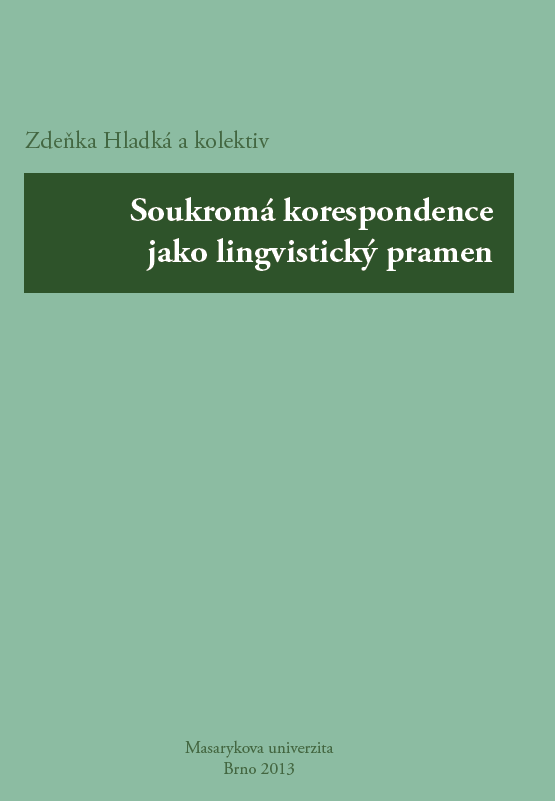Teritoriálně a sociálně podmíněné diference v jazyce soukromé korespondence
Territorially and socially dependent differences in the language of private
correspondence
Author(s): Zdeňka Hladká
Subject(s): Theoretical Linguistics, Phonetics / Phonology, Morphology, Comparative Linguistics, Sociolinguistics, Western Slavic Languages
Published by: Masarykova univerzita nakladatelství
Keywords: sociolinguistics; corpus linguistics; Common Czech; Standard Czech; methods of quantitative linguistic analysis;
Summary/Abstract: Private correspondence is a valuable source e.g. for the purpose of studying the dynamism of relationships between the standardized form of a language and the non-standard varieties. An analysis orientated on quantitative phenomena and based on the Corpus of Private Correspondence [HLADKÁ a kol. 2005] strives to find out how the features characteristic of spoken language used in informal private letters affect the traditional correlation of written form and standard language, which substandard means of expression are more acceptable and less acceptablein this borderline type of written texts and especially to what extent using substandard means of expression in private correspondence depends on the territorial background of the author. Attention is paid to elements from the spheres of phonology and morphology, the main focus being on the differences between Czech, Moravian and Silesian usage. Results of this analysis also contribute to discussions that are currently taking place in present-day Czech linguistics and sometimes lacking a basis of this kind, namely to discussions concerning the extent to which Common Czech expanding to the eastern part of the Czech territory and also to discussions concerning territorial differences in the spectrum of functions of the standard language. Other aspects are taken into considerationas well, namely sociolinguistic aspects, such as the influence of gender, age and education on the choice of means of expression.
Book: Soukromá korespondence jako lingvistický pramen
- Page Range: 61-98
- Page Count: 38
- Publication Year: 2013
- Language: Czech
- Content File-PDF

